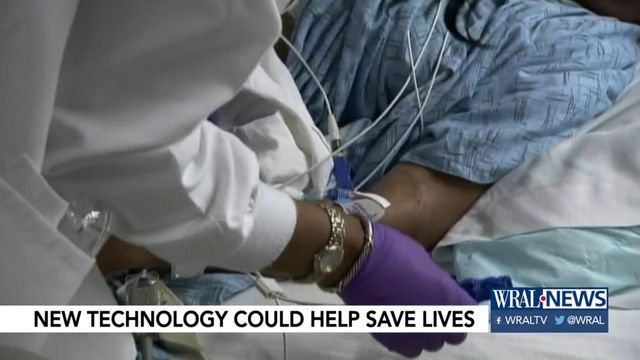AI in the ICU could be early warning system at WakeMed
WakeMed Hospital in Raleigh is one only two hospitals in the country testing a new technology which could help predict patient crises in the intensive care unit.
Posted — Updated"With medicine, everything is reactive, so if someone is in the hospital and they get sick, alarms start clanging and everyone is running to help them, but there's not that minutes to hours to days warning ahead of time," said Dr. David Kirk, the director of WakeMed's Electronic ICU.
Predictive Analytics Software could change that. It works from artificial intelligence and machine learning, breaking down thousands of medical records to try to find patterns that can be helpful to doctors.
"It can identify patterns and say, 'Hey, this is a dangerous pattern we are seeing and patients in the past when this pattern occurred bad things happened,'" said Kirk.
Kirk compares this advance knowledge to the warnings involved in weather forecasting.
"This would be a tornado warning," he said. "This is that hurricane warning that we hope we can have, because right now we don't have that."
The data collected could trigger critical conversations such as when to put a loved one on life support.
"To be able to have 30 minutes or an hour to talk to a family, to talk to a patient about what might be coming would be incredibly valuable. Not necessarily that you can stop the event but that you can prepare for it," Dr. Kirk said.
WakeMed is one of two hospitals in the country and the only one in North Carolina to serve as a test site for the new software.
"It's one of the biggest technology changes that has come out in a very long time as far as managing critically ill patients," Kirk said.
Related Topics
• Credits
Copyright 2024 by Capitol Broadcasting Company. All rights reserved. This material may not be published, broadcast, rewritten or redistributed.





